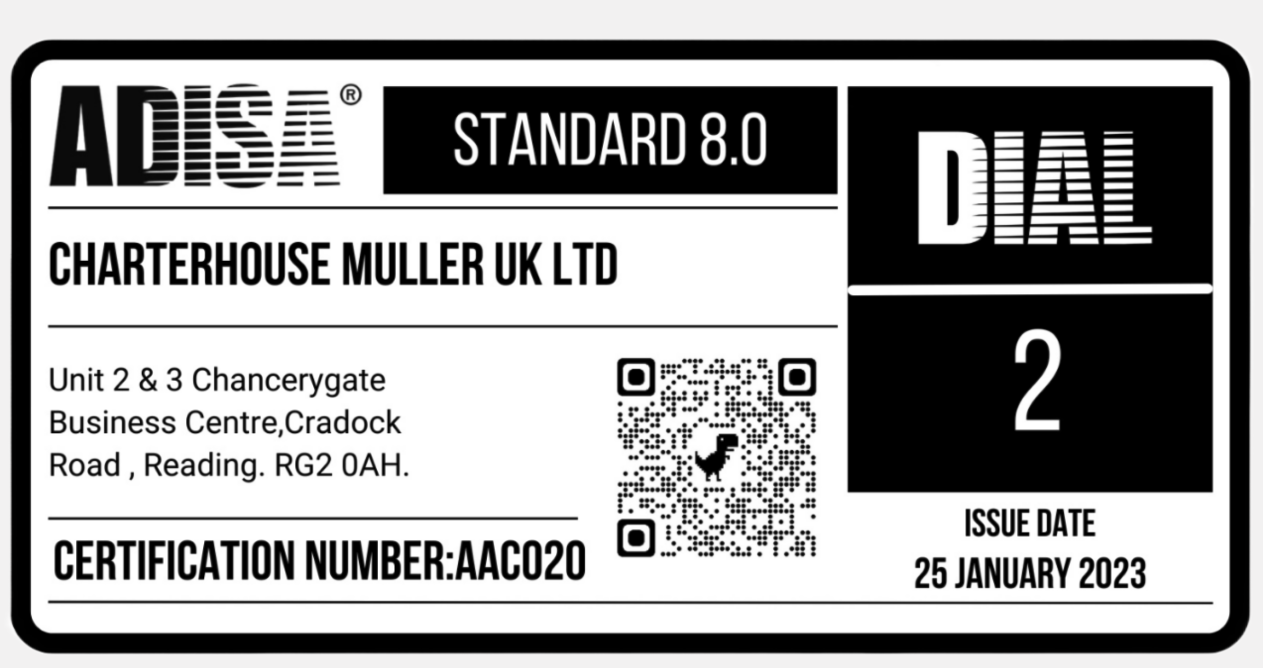
ADISA IT Asset Recovery Standard 8.0
Outlining our commitment to best practice in the ITAD industryCharterhouse Muller has been certified by ADISA since 2011, outlining our commitment to best practice in the ITAD industry. The latest edition of the ADISA Standard for IT Asset Recovery, version 8.0, has been formerly approved by the UK Information Commissioner’s Office as a GDPR certification scheme.
What does this mean for our customers?
A standard criteria has been defined for IT Asset Recovery and approved by the ICO for compliance with UK GDPR. By using a company that is certified against this standard, you are assured your partner has been pre-screened and can evidence compliance with GDPR when providing IT asset recovery services.
What is different to previous versions of the standard?
There are several differences in version 8.0, the largest being the introduction of Data Impact Assurance Levels (DIAL). This requires organisations to specify risk treatments which are sufficient to meet their own individual requirements during the IT asset recovery process.


DIAL rating
There are three levels of DIAL rating, each derived from an organisations view on:
Threat, Risk Appetite, Category of Data, Volume of Data and the Impact of a Data Breach.
Each of these variables must be determined by an organisation and their responses will define an overall DIAL rating. This in turn will determine the level of service provided by ourselves to meet the DIAL rating.
How do I generate my organisations DIAL rating?
By providing some basic company details and answering the five questions below, we will confirm your DIAL rating. We have also included some handy guidance notes with each question to help you through the process. Should you have any questions regarding this do not hesitate to contact us
Get your DIAL Rating!

Our certifications




